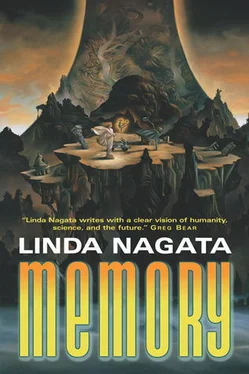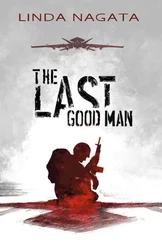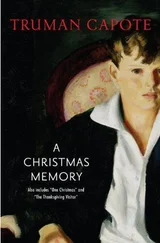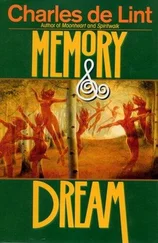“Because I met someone on the night Kedato died, and he scared me.”
“Someone threatened you?”
“You could say that.”
“Why didn’t you say anything?”
I shrugged. “I need to know who owns that savant, Liam.” It had caught a breeze. I could see it scudding through the valley, hastening north.
“You don’t think it’s just a lost savant?”
“A lost savant wouldn’t use its mimic function to hide from us. It wouldn’t run away.”
He drew a deep breath. “All right then.” He rolled his bike back out of my way. I called Moki, and put him in the empty saddle box between my knees. Then I took off.
It was noon before I began to worry. When I’d set out in the morning, I’d expected to find the savant’s owner close by. Now I wondered: how far away might Kaphiri be? The day was getting on. I wasn’t afraid to confront him under the sun, but I didn’t want to find him at twilight.
At last I pulled up on a broad ridge, almost the last outpost of the Kavasphir Hills. Liam stopped beside me. Together we watched the savant retreat across the brush like a slow-soaring owl, its color shifting to match the changing vegetation. Liam asked, “Have we gone far enough?”
“Do you have field glasses?”
He reached into his saddle box and pulled out a pair. Then he searched the land ahead of us. Finally he shook his head. “There’s nothing out there. It’s probably just a runaway after all.”
I’d been so focused on following the savant that I’d allowed myself to think of little else, but now a new thought intruded. Was it possible the savant was deliberately luring us, drawing us out from the shelter of Temple Huacho? “Can you still see it?” I asked. “Has it slowed down?”
Liam looked, but he did not answer right away. His head turned in a slow arc as he searched the land. A minute passed. Then another, and with it went my new theory, for if the savant was a lure, surely it would have slowed down, or shown itself? Giving us some motivation to go on…
“There!” Liam said. “Straight ahead. At least a mile.”
I squinted, trying to make it out. “Has it reached the highway?”
“Not yet. But there’s no one out there. No sign of a truck or a bike.”
“Okay. I’m tired of chasing it anyway. Let’s change tactics. Let’s try to catch it this time.”
He continued to watch the savant through his field glasses. “If you want. But if we go any farther, we won’t be able to get back to Temple Huacho before dark.”
I thought about it. “We could camp. There should be gear in the saddle boxes.” It was our habit to keep the bikes ready.
“Or we could push on to Temple Nathé. Once we’re on the highway, it’ll be easier to reach than Huacho.”
Temple Nathé. Where my father had died. I felt suddenly frightened, but at the same time I wanted to see it. “All right.” I patted Moki’s head. He was still sitting contentedly in his saddle box, awaiting our decision. “Let’s go then, before we lose our quarry.”
The savant changed direction when it reached the highway, turning northeast to follow the line of the road. But even with a strong breeze behind it, it couldn’t stay ahead of us once we were on the pavement. We pushed our bikes to seventy, and within a few minutes we caught up with it: a triangular pane of blue in the air overhead.
Then suddenly, the savant ceased to flee. We brought our bikes to a stop beneath it. It floated, twenty feet overhead. I glared at it, willing it to move on, to show us on to Kaphiri.
“Jubilee, it’s going higher.”
I pulled my rifle. “Don’t lose sight of it.” I would bring it down, before I would let it get away.
The savant was thirty feet overhead. Then fifty. A tiny blue chip, barely discernible. “Liam, it can’t survive up there.”
“I think that’s the point.”
Silver sparks began to boil around the savant’s triangular wing, and then the sparks bubbled into a glinting cloud that completely enveloped its shape, a tiny, glittering silver storm that lasted only seconds before it burned away in the afternoon’s brilliant light, but that was long enough. The savant was gone.
Such was the fate of flying machines. Scholars say there is some dormant form of silver floating as particles high in the atmosphere that will cling like static electricity to the wings of any flying machine. When their density rises to some trip point, these particles will boil into true silver, even in defiance of sunlight. If the flying machine is not destroyed immediately in flight, it could still ignite a silver storm on the ground, which is why no enclave will allow its citizens to even experiment with flying machines.
I sighed and sat down on the side of the road. Moki came to me, nuzzling into my lap. I felt like a fool for running so far after a machine that was (it seemed quite obvious now) lost and crazy. Liam sat down beside me, passing a water cell into my hands. “It shouldn’t take more than two hours to reach Temple Nathé,” he said. “So we’ve got time. Why don’t you tell me why we’re here?”
I nodded. Certainly, I owed him that.
Dread had stirred in me when Liam first mentioned the name of Temple Nathé. The feeling did not leave me all that afternoon, and still I was taken by surprise when the highway crested a ridge and suddenly we were looking down on a wide valley filled with golden knee-high grasses. There beside the highway were the grim remains of my father’s truck.
Neither of us spoke as we approached the hulk. It was an eerie testament. The wheels and undercarriage, and the lower third of the truck’s body, were gone, dissolved by the fickle touch of silver. The remaining shell was engraved in a language long dead in this world, though it was one I knew. I walked around the ruin, reading as I went: community news from some forgotten era—a storm, a marriage, a new temple site, a silver flood. Each word a faint echo of lives lost to the past and now my father had joined them.
Morning glories were already sending their vines over the hood of the truck and in through the windows. I checked the back. If there had been any cargo it was gone now—though whether it was taken by the silver or by some trucker who had passed through since the flood, I could not say.
The truck lay in a low swale, twelve feet from the raised roadbed. Silver had transformed the highway surface, reworking it into a folly of glass tiles that had since been crushed by passing trucks.
Thirty miles back Liam and I had overtaken an army of road-building kobolds—black, thumb-sized machines patiently transforming stone and soil to rebuild the ruined highway. In another day or two (if the silver did not come again) the kobold army would reach this valley and recycle the shattered glass, blending it into a new road of more practical material. As they passed, they would likely cannibalize the remains of my father’s truck, so I was grateful we had arrived ahead of them.
Liam sat on the high shoulder of the road, gazing past the truck, toward the flowing white walls of Temple Nathé less than two-tenths of a mile away. Set on the valley’s tawny slope, the temple gleamed in the mellow rays of late afternoon. “Look at it,” Liam said in disgust. “How could he have been so close, and not made it?”
I shook my head. Some part of me was afraid to learn the answer.
Liam had not said much since my confession. I wasn’t sure how much he believed, but his face was grim behind his dark sunglasses. He stood up, his shoes crunching on bits of colored glass. “It’s time we found out.”
So I called to Moki, who was bounding about in the grass, stirring up moths. Then we mounted our bikes, to ride the last few hundred yards to the temple gate.
Читать дальше










